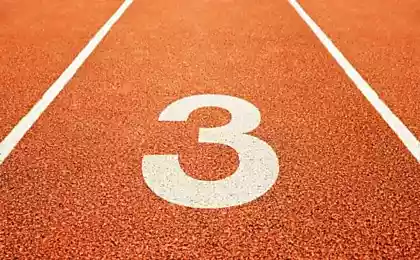265
11 Things to Do to Learn to Value Your Time

Timeline of life: How to Stop Being a White Wheel and Start Living
According to a study by the University of Cambridge (2023), 73% of people spend 4 hours a day on activities that do not bring them closer to their goals. But time is not a currency, it cannot be accumulated. So how do we manage them?
1. Conduct a "chronic audit"
The philosopher Seneca once said, “How dare you waste hours you don’t count?” Write down every 15-minute action per week. On average, 11 hours are spent on social scrolling.
Tools:
- Toggl Track application for automatic accounting
- Paper Safe Method: Put a Coin in a Box for Every Useful 30 Minute
2. Set a "tax on nonsense"

Nobel laureate Daniel Kahneman proved that decisions that take less than 2 minutes are perceived by the brain as free. Turn empty actions into “paid”: in front of social networks – 10 squats, before the series – the book chapter.
Formula:
- Time = Time = Energy + Intention
- Use the 5 Why rule before any action.
3. Create a Temporary Island Map
Chronophages (time absorbers) act like viruses. According to MIT, day visualization reduces procrastination by 41%. Draw the day as an archipelago, where each island is a block of time with a "customs office."
How to use:
- Colored areas: red (forbidden), green (creative)
- "Bridge dachshund": transition between affairs = 2 minutes of breathing
4. The Eisenhower Matrix: A Filter for Solutions
The 34th President of the United States divided the tasks into four quadrants: urgent / non-urgent and important / unimportant. A Harvard Business School study found that focusing on “non-urgent” increases productivity by 58%.
How to implement:
- Distribute tasks daily in a 2x2 table
- Delegate or remove everything from the “Important” quadrant
5. Digital Hygiene: Protecting against the Notified Apocalypse
According to the American Psychological Association, multitasking reduces efficiency by 40%. Turn off 90% of notifications, it will give you back 2.5 hours a day.
Action:
- Use Do Not Disturb Mode from 9:00 to 18:00
- Remove social networks from your phone - leave only on PC
6. The 80/20 Principle: Focus on 20% Gold
The Pareto rule is in action: 20% of efforts produce 80% of results. Mark Zuckerberg wears identical T-shirts to avoid wasting time choosing clothes.
Practice:
- Make a “20 percent action” list for each goal
- Automate or delegate the remaining 80%
7. Technique "Tomato": work in jerks
Francesco Cirillo Method: 25 minutes of work + 5 minutes of rest A University of Illinois study confirms that these cycles improve concentration by 63%.
Instructions:
- Use a tomato timer (such as Focus Keeper)
- After 4 cycles take a break of 30 minutes
8. "No" is your superweapon
Warren Buffett once said, “The difference between the successful and the very successful is that the latter say no to almost everything.” Every “yes” is a time stolen from your goals.
Denial script:
- “I can’t now, but I can offer an alternative.”
- “Give me a day to think” 90% of requests will lose relevance
9. "Eating Frogs": The Morning Ritual
Mark Twain once said, “Eat a frog in the morning” – do the most unpleasant thing first. Neuroscientists explain that dopamine levels are higher in the morning, which helps overcome resistance.
Plan:
- Make a list of "frogs" from the evening
- The first 2 hours of the day are just priorities
10. Reflection: Audit of the week
Benjamin Franklin asked himself every Friday, What have I learned? What mistakes have you made?” Statistics show that a 15-minute weekly analysis increases efficiency by 31%.
Checklist:
- Top 3 Achievements of the Week
- “Chronophage” that you need to get rid of
11. Start a museum of achievement.

Psychologists from Stanford found that fixing micro-victory increases motivation by 3 times. Collect “exhibits”: checks from the places where you studied, screenshots of completed tasks.
Glossary
Chronophages
Activities that aimlessly consume time
The Zeigarnik Effect
The tendency to remember unfinished tasks better
The paradox of choice
The Stress of Too Many Decision Options
Temporal intelligence
Ability to optimally allocate time
Melancholy of the world order: How to Turn Existential Grief into Power
8 Ways to Know What You Really Need to Be Happy























